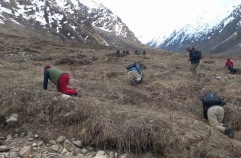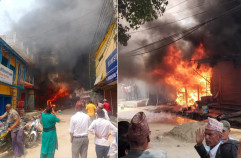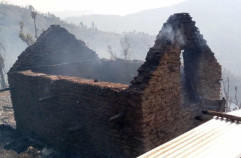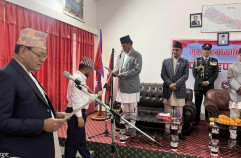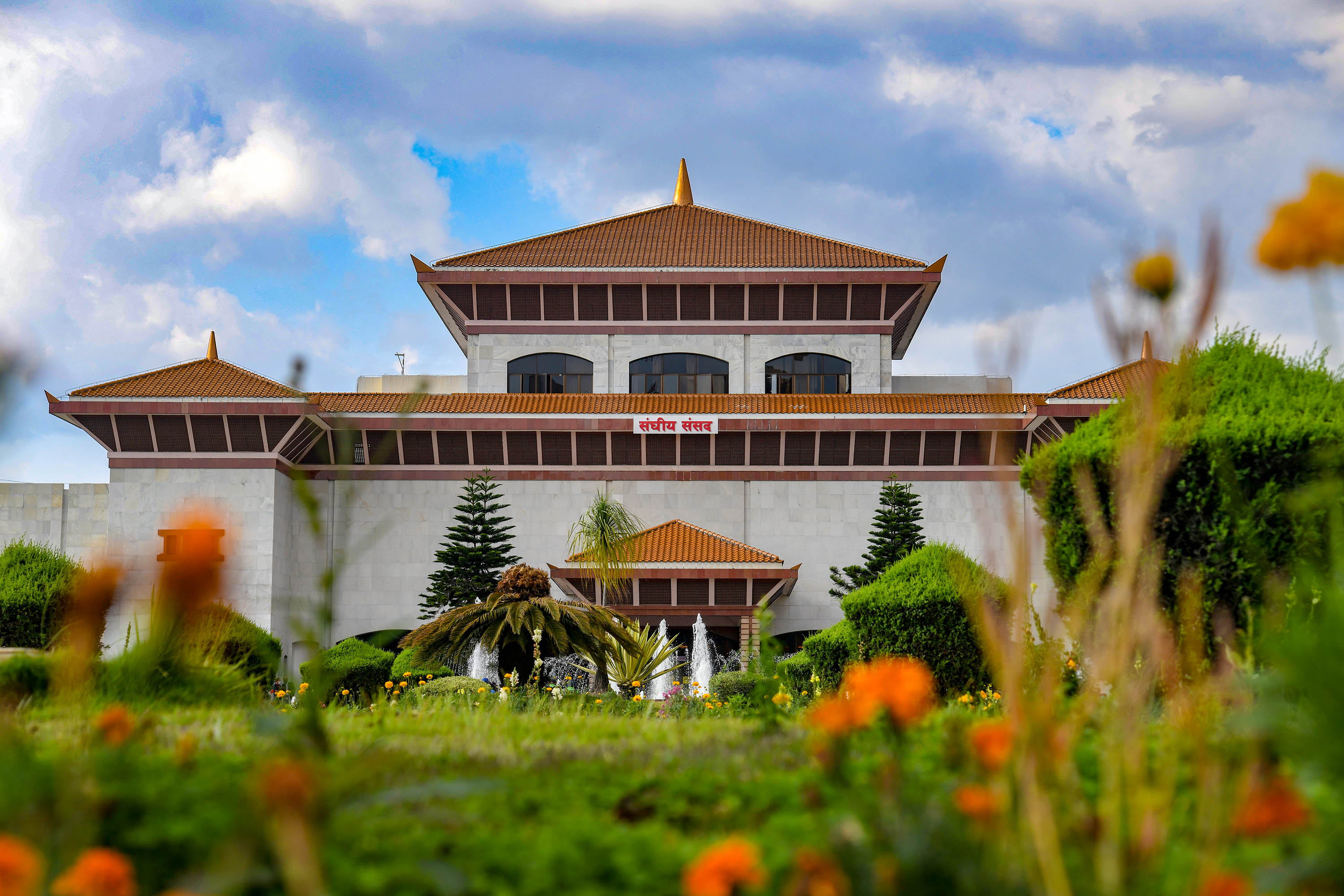Grinding skills, losing original content
We use Google Cloud Translation Services. Google requires we provide the following disclaimer relating to use of this service:
This service may contain translations powered by Google. Google disclaims all warranties related to the translations, expressed or implied, including any warranties of accuracy, reliability, and any implied warranties of merchantability, fitness for a particular purpose, and noninfringement.

79-year-old Dev Bahadur Khatri of Sisne Rural Municipality-3 Pokhara does skilled work. He said that once upon a time, he used to reach Nepalgunj from Batauli Bazar in Ruppandehi to sell ghee from here. He has experienced that those sad days disappeared after the motor reached the village. However, the compulsion to gather money in the evening and morning has not gone away. Therefore, he said that he used to make all the daily used items at home to earn a living.



The use of domestic products is not what it used to be. He is worried after the use of such goods is disappearing. The new generation does not want to learn such skills . Dev Bahadur says that his skills are in crisis. He is sad that the new generation is not interested in learning. "We used to make doko, namlo at home," he said, "we also used to weave cowhides for tying cattle-foots, room for grain storage and Supo, jharna and dhakia". They are getting old . He said that after the sale was not made, the Zongar stopped working.
Khatri is not the only one in this situation . The generation of those who know basic skills is getting older. The new generation did not show interest in learning . Therefore, basic skills are disappearing from the village. Such materials have started disappearing in rural settlements. Along with the production of household materials made from bimal and allo ropes and nigalo and bamboo choya, the use is also decreasing . Sisne-3's Chandrakala Khadka says that her father and mother have stopped using the woven hats. It is his experience that the sale of domestic products stopped after the use of plastic preparations in the market.
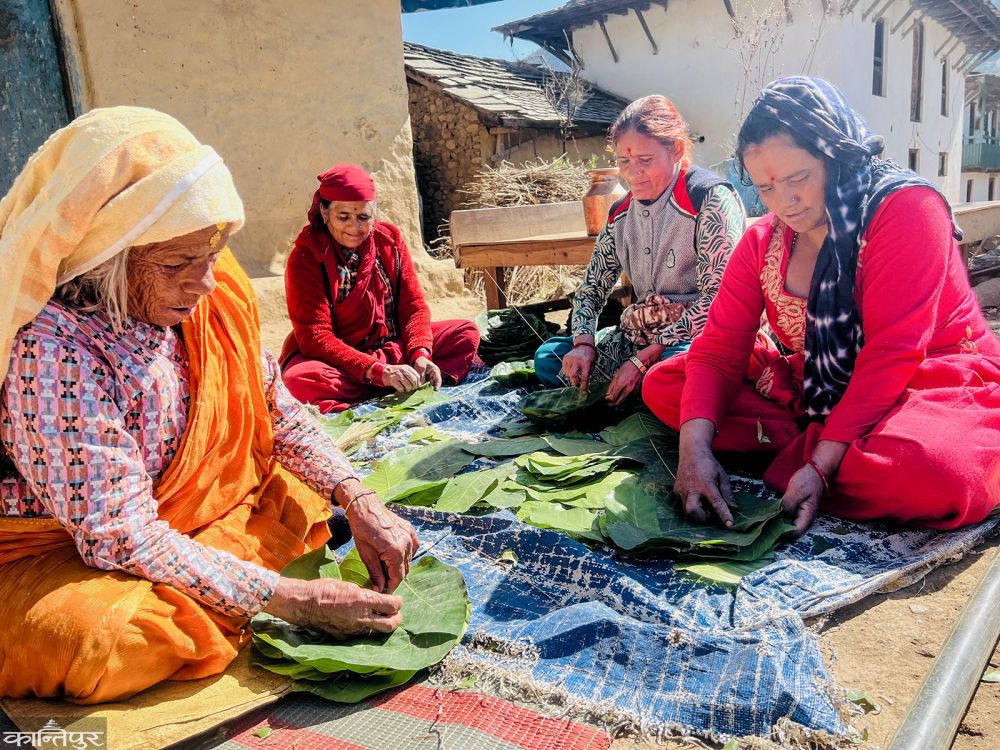
Local 84-year-old Manram Budha is remembered to have made ropes and ropes from Bimal and hemp rope. "We used to soak bhimal leaves, grass and leaves in water and dry them in the sun to make ropes," he said. Using this, we used to make a lot of materials for tying bario (naamlo) and buffaloes. Instead, Bazaria says that plastic rope is used.
Talak Bahadur Khadka of Sisne-2 said that the skill of weaving things including different types of doko made from bamboo and Nigalo choya is disappearing. He remembered that he used to go to the forest in February-April and after bringing nigala, he used to take out choya and weave doko and mandro. His son had learned the skill . However, he did not continue. He says that he cannot weave a new one when he needs a doko now. Doko is still used for firewood. However, there is a shortage of doko weavers in the village. Khadka says that their skills have not been transferred to the next generation.
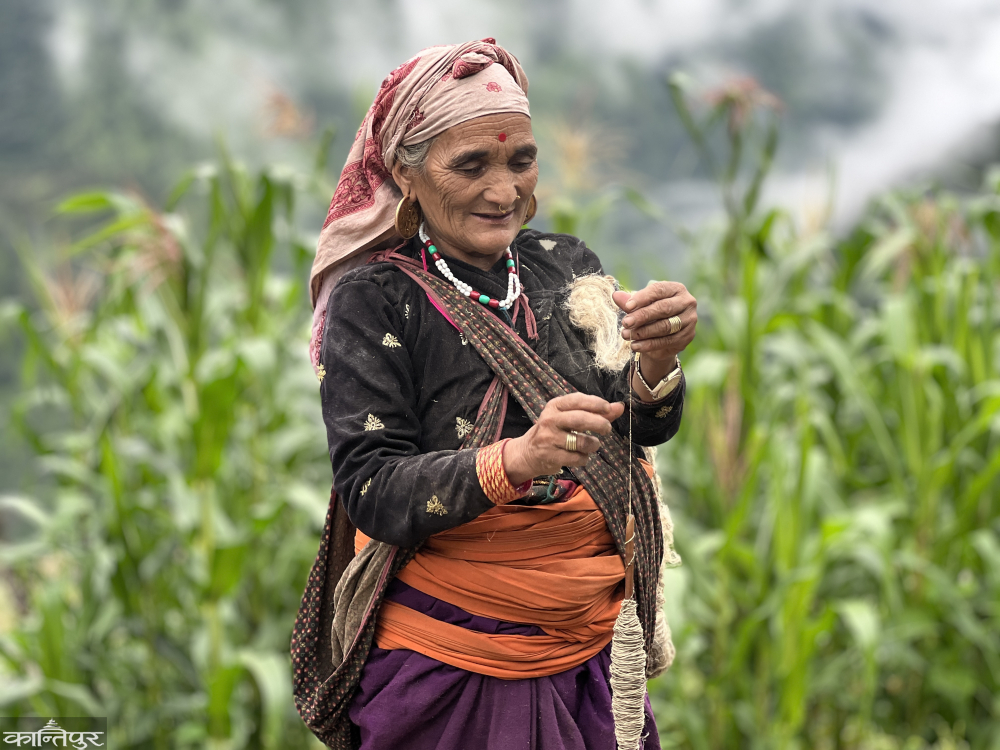
Sisne-5's Sapna VC said that even now they prepare dhakia, kucho and various ropes and gundri from paddy straw, chackti from corn cobs etc. . However, she said that there is a problem due to non-handover. Stating that she learned the skill from her mother and aunt, she said that the use of such materials is now disappearing. 81-year-old Dalveer Oli from Pokhara also said that he prepares all the items for daily use at home. Remembering that he used to make original bhakari from doko, namlo to bario and grain storage, he says, "We used to make different home-made bhakari from choya". And we used to make jabo for carrying contract, doko for carrying grass, namlo and different types of rope and dhakia and petaro.'
Oli says that he used to make these kinds of headgear without emptying his hands while foraging for livestock. "Our hands were not empty even when grazing cows," he says, remembering the earlier days. But, now he is no longer with the friend of that time. The time has changed, but the memory is still fresh.'
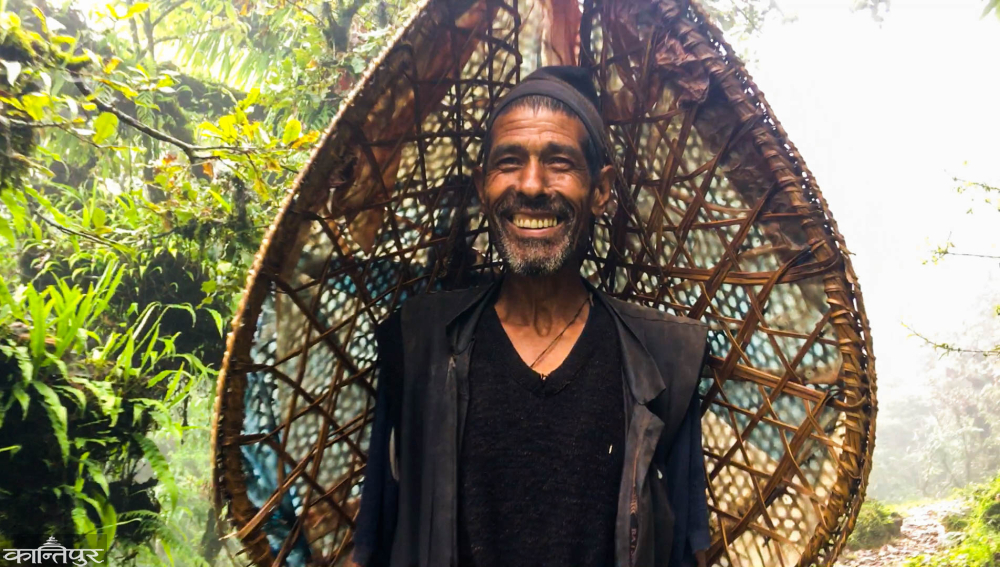
It is said by the previous generation that these kinds of materials made in the village houses are exchanged with other goods to meet the needs of each other. Dev Bahadur Khatri from Pokhara said, "We used to drink wine and exchange with Doko". In this way, the work was carried out by exchanging . By doing this, I would not have to buy many things. Tejendra Khadka of Pokhara said that although they have learned some skills from the older generation, their practical use is very less. "There is an alternative to everything." So we also became lazy . Now ready-made goods available in the market seem easy. Khadka believes that these basic skills are starting to wear out as people have come up from the time of working only to meet their daily needs and with time, people's lifestyles and needs have also changed. He adds, "The generation before us spent time in the fields and in the service of animals and cattle". We are ready to compete with the world. And Doko-Namlo is not our priority.'
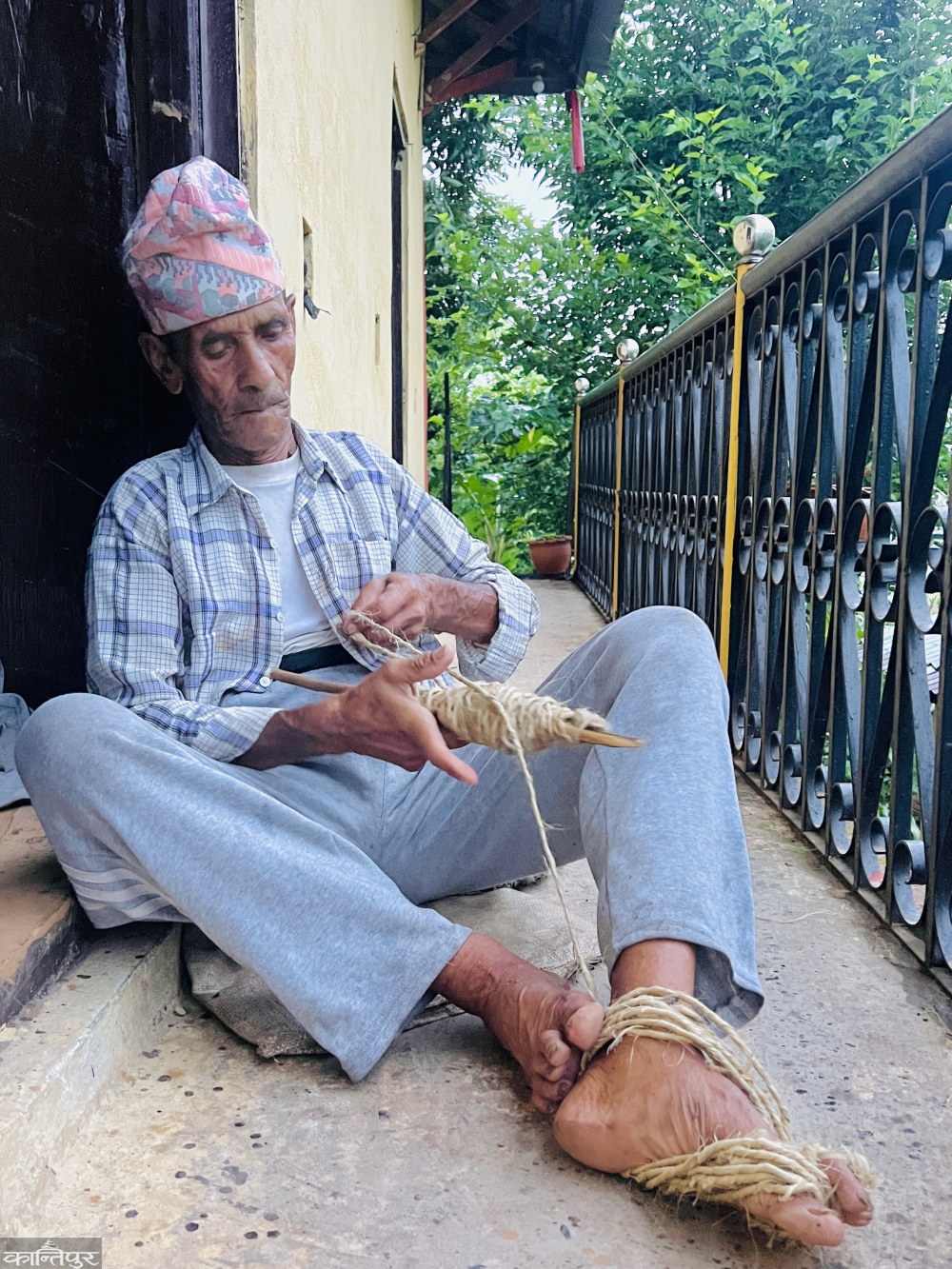
Mahendra KC, a former teacher in Pokhara, is not happy that the original style of fulfilling daily needs by using local products has declined. ``We used to work without emptying our hands . There was something to be done in the hands even if I was idle in the neighborhood and neighborhood. While working in this way, on the one hand, it would be creative and on the other, it would fulfill the needs,'' he says, 'We used to make grass from bhimal leaves, firewood and rope from bark. We used to take out the leaves of Nigalo and bamboo, wood of twigs and bark and weave the head . By doing this, nothing will be wasted . Everything was used .'
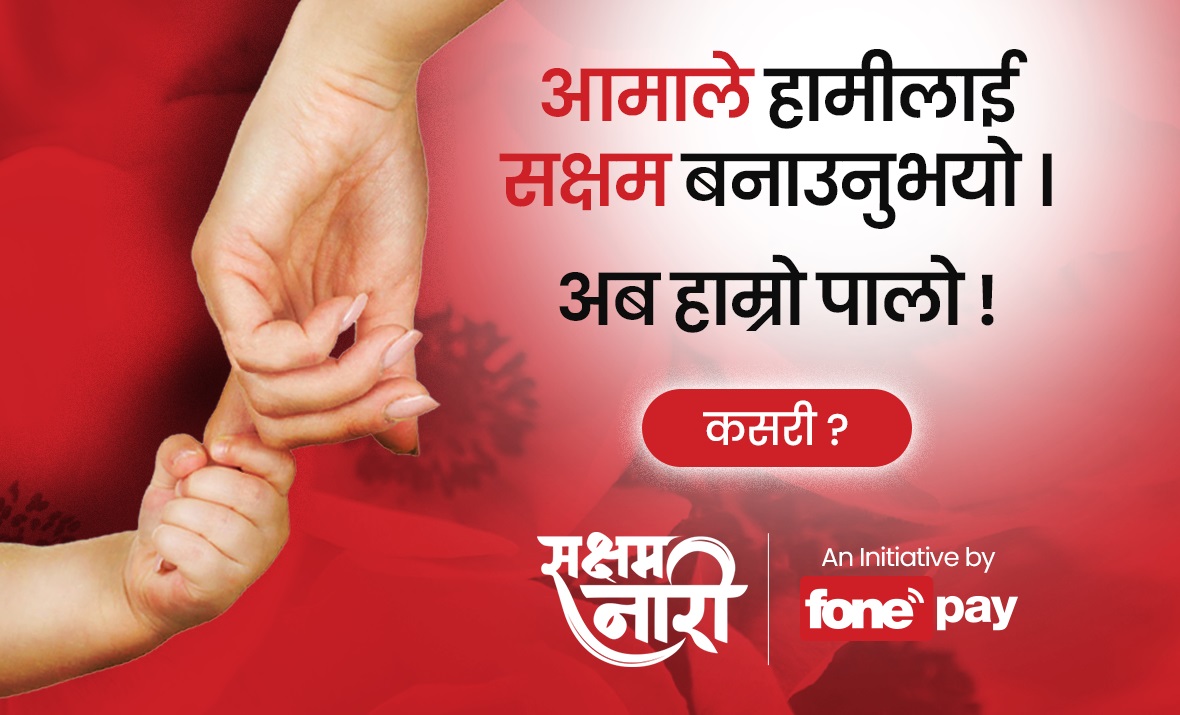

 २१.१२°C काठमाडौं
२१.१२°C काठमाडौं



